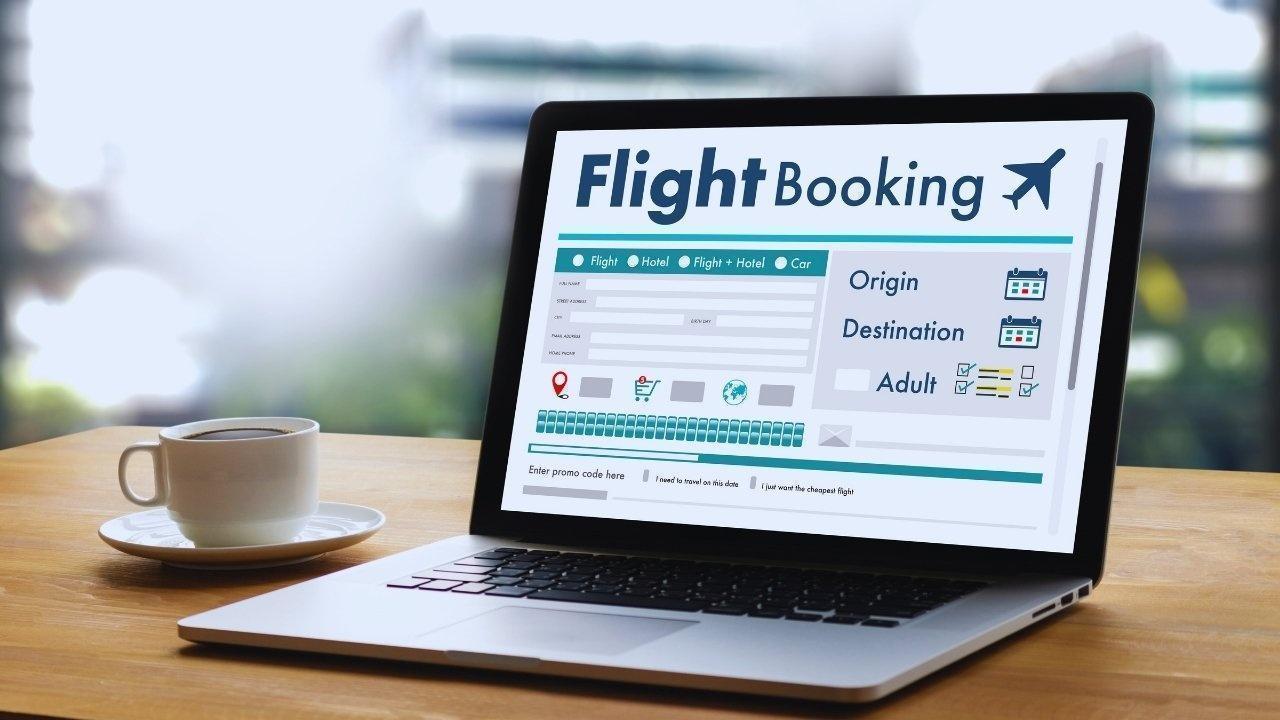
Post by : Anees Nasser
In the past, booking flights was an easy endeavor. However, the introduction of unpredictable travel trends, sophisticated pricing models, sudden spikes in demand, and innovative airline strategies have made fare fluctuations a norm. What seems like an affordable ticket one moment can surge in price the next, leaving travelers uncertain about when to make their reservations, which platforms to utilize, and how to avoid inflated costs.
Grasping the intricacies of airline ticket pricing is essential for informed travelers. Smart flight booking isn't merely about chance; it's about comprehending the mechanisms behind fare pricing, recognizing demand shifts, and pinpointing factors that influence ticket costs. Whether you're planning a domestic journey or venturing overseas, having a tactical approach is vital to securing reasonable fares without being caught off guard.
This article delves into the latest insights for strategic flight bookings—rooted in current traveler behavior, airline practices, and fare dynamics.
The concept of dynamic pricing rules the aviation industry today, where fares fluctuate based on demand, availability, seasonal trends, booking delays, historical sale patterns, and the pricing strategies of competitors.
• Seasonal fluctuations
• Timing of bookings
• Popularity of destinations
• Fuel cost variations
• Cycles of business travel
• Differences between weekend and weekday travel
• Upcoming holidays
• School break timings
• Route competition
• Proximity to booking deadlines
Once you decode the reasoning behind these variations, predicting affordable times to book becomes attainable.
No single rule fits all, but recent travel patterns suggest these timeframes yield the best results:
30–45 days in advance
Booking too far ahead or too late can often lead to inflated prices.
2–4 months ahead
Long-haul flights tend to see significant fare increases as the departure date approaches.
3–6 months ahead
Routes with heightened demand soon become pricier.
These are typically only available on less-trafficked routes but may not be reliable given current travel trends.
Booking within these suggested frames improves your chances for balanced fares.
Flight costs fluctuate weekly based on demand and travel patterns.
• Midweek (Tuesday–Thursday) usually shows steadier pricing.
• Monday mornings often witness spikes due to corporate travelers.
• Weekend searches may happen, but the prices aren't always lower.
• Fridays can display slightly reduced rates, fluctuating with demand.
These patterns hold true across numerous routes but lack rigidity.
The days you choose to fly can often weigh heavier than booking times.
• Tuesdays
• Wednesdays
• Saturdays
These days usually see fewer business travelers and lessen weekend congestion.
• Fridays and Sundays
• Mondays during peak travel seasons
• Days close to major holidays or extended weekends
Being flexible with flight dates typically lowers overall costs.
The timing of your journey can influence ticket prices.
• Early morning departures
• Late-night or overnight flights
• Mid-morning flights (high corporate travel periods)
• Evening flights (post-office hours)
Adaptable travelers often find greater savings.
For cities with multiple airports, making an informed choice can drastically affect fares.
• A certain airport accommodates more budget airlines
• Secondary airports have lower fees
• Alternate airports experience less congestion
• One airport boasts more airline competition
A slight change in route can yield significant savings.
Rigid travel schedules often lead to paying more.
Even a shift of one or two days significantly alters ticket prices.
• Low-demand days yield cheaper fares
• Airlines may reduce prices for unfilled seats
• Disparities between weekend and weekday pricing
If possible, always check flight prices across multiple days.
Seasonal factors greatly influence ticket prices.
• Summer vacations
• Festive months
• New Year celebrations
• Long weekends
• School vacations
• Major local events
• Weeks following major holidays
• Shoulder seasons (between peak periods)
• Off-peak months for resort areas
Booking during shoulder periods usually provides optimal comfort with minimal crowding and pricing.
Specific signs can indicate upcoming fare hikes.
• A long weekend is approaching
• Holiday celebrations are on the horizon
• Seat availability drops
• Frequent searches are made on popular routes
• Travel alerts or regulation changes happen
• Fuel prices rise
Recognizing these signals aids in timely bookings.
While direct flights offer convenience, they can be pricey. Opting for multi-city or connecting routes often yields better deals.
• Booking separate legs with various airlines
• Utilizing regional carriers for shorter trips
• Exploring routes through less crowded hubs
• Considering nearby airports for cheaper connections
• Pairing direct outbound flights with connecting return legs
Combining itineraries sometimes surpasses standard round-trip bookings.
Low-cost airlines can provide attractive rates, provided you're familiar with their policies.
• Low base fares
• Extra fees for add-ons
• Paid seat selections
• Strict check-in policies
• Limited options for date changes
• Meals usually not included
Budget airlines are suitable for light travelers adhering to their guidelines.
Different payment options can unlock perks such as discounts or cashback.
• Travel-specific credit cards
• Co-branded airline cards
• Cashback through wallets
• Bank-generated discounts
• EMI options during peak pricing
Selecting the right payment option could provide extra savings.
Manually tracking prices can be labor-intensive. Fare alerts simplify this by notifying you when prices decrease.
• Timely notifications for price drops
• Analysis of historical pricing trends
• Automated comparisons
• Alerts on price increases
Fare alerts are particularly beneficial for costly or long-distance routes.
Multiple traveler bookings can be complex, and many don’t understand that group fares sometimes end up being more expensive.
• Check individual prices before securing group bookings
• Divide booking into smaller segments
• Avoid securing all tickets in one go
• Seek group discounts only through the official airline sites
Knowing how airlines categorize seating can significantly lower group booking expenses.
Selecting seats can lead to additional costs.
• Skip paying for seat selection unless vital
• Check in early for better complimentary seat options
• Steer clear of unnecessary upgrades unless the cost difference is minor
• Evaluate seat configurations to dodge cramped or noisy areas
Seat selection depends on personal preferences and flight duration.
Airline pricing can feature unexpected charges.
• Convenience fees
• Charges for seat selections
• Baggage fees
• Meal costs
• Rescheduling penalties
• Payment processing fees
Thoroughly reviewing the fine print prevents unpleasant surprises later.
Flight cancellations and delays are increasingly standard in today’s world.
• Rescheduling of flights
• Delayed luggage
• Weather complications
• Medical emergencies
• Trip cancellations
Acquiring insurance during the booking process is a wise, often economical decision.
Refundable fares might be steeper but provide added flexibility.
• Your itinerary could shift
• You're traveling for business
• You value peace of mind
• Your plans are set
• You're seeking the lowest fare
• You're booking well ahead
Informed travelers must balance price against flexibility prior to finalizing decisions.
Many individuals fall into “price obsession,” leading to relentless checks of airfare and, subsequently, unnecessary stress.
• Monitor fares for 3–5 days
• Establish a budget limit
• Make reservations when the fare is reasonable, avoiding the search for the lowest price
• Don’t wait for significant drops on routes with high demand
Value-driven deals stem from approachable strategies, not from the pursuit of perfection.
Navigating flight bookings in today’s travel environment necessitates a keen grasp of dynamic pricing, seasonal trends, flexibility tools, and fare-tracking resources. With an appropriate strategy, travelers can evade exorbitant prices, diminish uncertainty, and streamline their planning processes. Intelligent flight booking melds timing, insight, and simplicity—knowing when to reserve, what pitfalls to avoid, and how to respond to evolving travel trends.
Once these tactics are mastered, minimizing flight costs can seamlessly become part of your traveling routine.
The insights provided in this article are intended for general travel planning. Travelers should verify airline protocols, seasonal practices, and fare conditions prior to confirming bookings.










Kim Jong Un Welcomes the New Year in Pyongyang with Ju Ae
Kim Jong Un celebrates New Year with fireworks and patriotic displays in Pyongyang, showcasing his d

Dhurandhar Day 27: Ranveer Singh’s Blockbuster Continues to Shine
Dhurandhar hits ₹1117 crore globally by day 27, establishing itself as a record-breaking hit. Ranvee

Hong Kong's New Year 2026 Observed in Silence Following Tragic Fire
For the first time in years, Hong Kong ushered in 2026 without fireworks, opting for light displays

Dhurandhar Surpasses ₹1000 Cr Globally, Faces Gulf Ban Challenges
Dhurandhar's global earnings exceed ₹1000 crore despite a $10M setback from Gulf bans. Overseas audi

China Asserts Peace Mediation in India-Pakistan Dispute; India Responds Firmly
Amid India's denial of third-party mediation, China claims it helped defuse tensions between India a

Mel Gibson and Rosalind Ross Announce Their Separation After Nearly Ten Years
Mel Gibson and Rosalind Ross reveal their split after nearly a year, emphasizing their commitment to